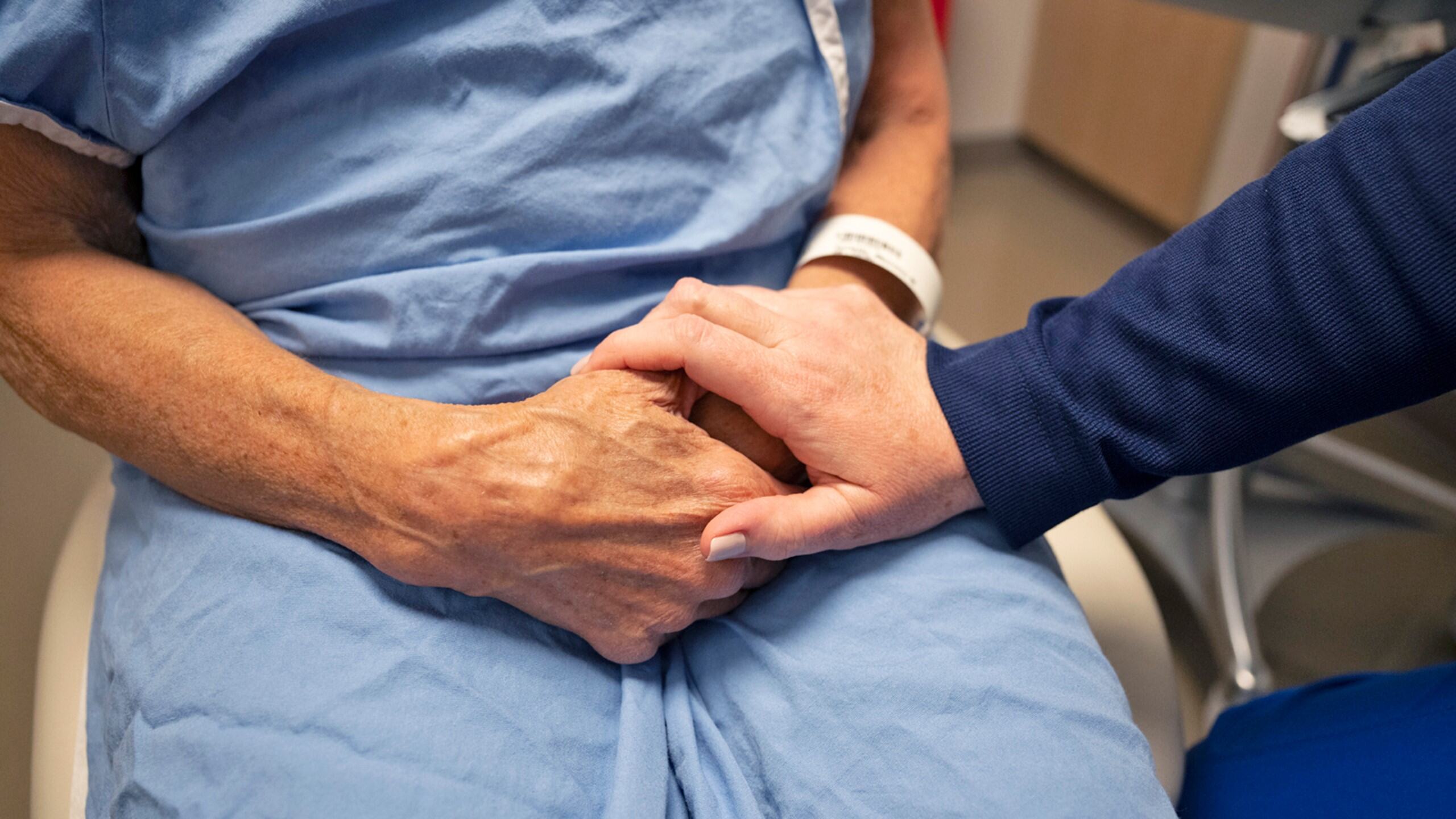Chemotherapy for early-stage breast cancer
Your care team may recommend chemotherapy before breast surgery (neoadjuvant chemotherapy) or after breast surgery (adjuvant chemotherapy.
Here are some reasons we may recommend chemotherapy for early-stage breast cancer:
- Chemo raises the chance your surgeon will remove all of the cancer.
- Chemo shrinks the tumor so it’s easier to remove during surgery.
- Chemo kills cancer cells in the lymph nodes, so there’s not need to remove your lymph nodes.
- Chemo kills breast cancer cells that remain after surgery, so there’s less chance the cancer will come back.
- Chemotherapy regimens
-
Most people with early-stage breast cancer have chemotherapy for about 3 to 6 months.
Some people may have a dose-dense chemotherapy regimen. You will have chemo drugs with less time between treatments than regular chemo. Research shows dose-dense chemotherapy can improve survival. It also lowers the risk breast cancer will come back. Dose-dense chemotherapy does not cause more side effects.
- Combination drug therapy
-
Combination drug therapy means you get more than 1 type of drug at a time.
A tumor can become resistant to a drug, which means the drug stops working as well as before. With combination therapy, the tumor still responds to the second or third drug that’s part of your treatment.
You can have combination therapy before or after breast surgery. Most often, you will get 2 or 3 drugs together.
Some of these drugs are breast cancer targeted therapies. They work by targeting certain molecules that make breast cancer grow.



